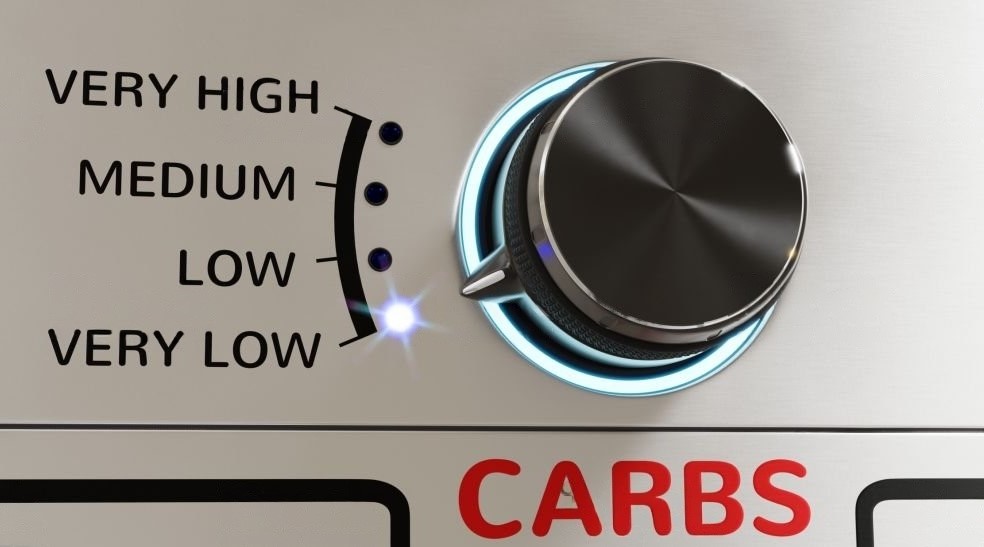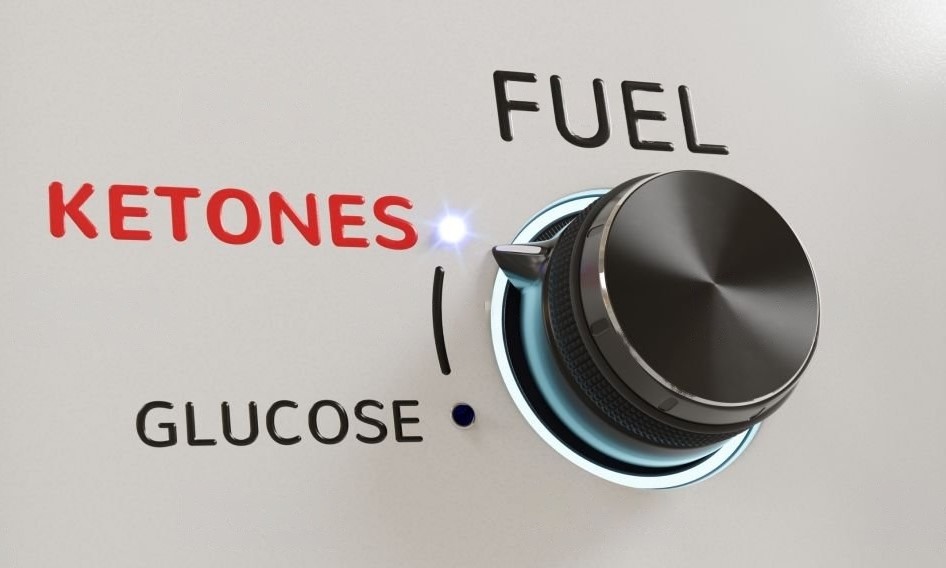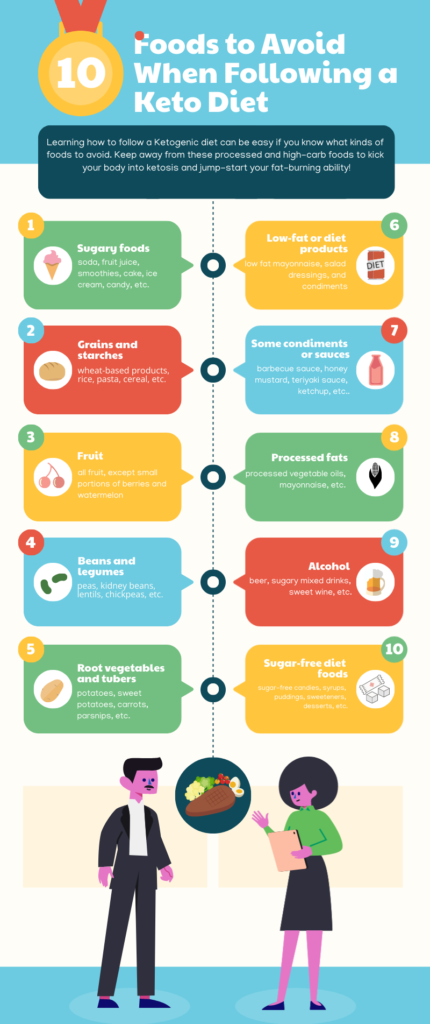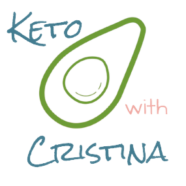The ketogenic diet, or keto diet for short, has gained significant popularity in recent years for its potential to promote weight loss, enhance energy levels, and improve overall health. This low-carbohydrate, high-fat diet involves drastically reducing carbohydrate intake while increasing fat consumption. By shifting the body’s metabolic state into ketosis, a natural process in which the body burns fat for fuel instead of carbohydrates, the ketogenic diet offers a unique approach to achieving optimal health and well-being.
While there is a bit of a learning curve and adjustment period to starting a keto diet, I’ve found that once I got the basics down and pushed my body fully into that fat-burning mode, it’s pretty easy to follow. As with any diet, there will be temptations and challenges along the way, but for me, the easily trackable success I can see help motivate me to stick to it.
- Understanding the Ketogenic Diet:
- Health Benefits of the Ketogenic Diet
- Risks and Considerations
- Practical Tips for a Successful Ketogenic Journey
In this comprehensive guide, I will delve into the principles, benefits, potential risks, and practical tips to help you understand and decide whether or not to embark on a ketogenic diet journey.
Understanding the Ketogenic Diet:
The Science behind Ketosis
Ketosis is the metabolic state which the body enters when following a ketogenic diet. During ketosis, the body shifts from primarily using glucose as its main source of energy to utilizing ketones, which are produced from the breakdown of fats. This metabolic switch occurs when carbohydrate intake is significantly reduced, and the body’s insulin levels decrease. In the absence of glucose, the liver converts fatty acids into ketones, which can cross the blood-brain barrier and serve as an efficient fuel source for the brain. This shift in fuel utilization offers various benefits, including improved energy levels, enhanced mental focus, and steady fat burning. I’ve also personally noticed that once I’m in ketosis, my hunger levels drop significantly.
Macronutrient Ratios

A crucial aspect of the ketogenic diet is maintaining specific macronutrient ratios to achieve and sustain ketosis. Typically, a standard ketogenic diet involves consuming around 70-75% of calories from healthy fats, 20-25% from high-quality proteins, and only 5-10% from carbohydrates. These ratios can vary slightly depending on individual needs and goals, but the general principle is to keep carbohydrate intake low enough to induce and maintain ketosis.
Tracking macronutrient intake, especially carbohydrates, is essential to ensure that you stay within the appropriate ranges and optimize your body’s ability to utilize fats for fuel. There are many apps and websites that make it easy to do this, and I’ll share my favorites with you later in this guide.
Types of Ketogenic Diets
There are different variations of the ketogenic diet that can be tailored to individual preferences and goals. The standard ketogenic diet (SKD) is the most common (and my favorite) approach, emphasizing high-fat, moderate-protein, and low-carbohydrate intake. It is suitable for most individuals seeking weight loss, improved metabolic health, or enhanced cognitive function. Another variant is the targeted ketogenic diet (TKD), which involves consuming a small amount of carbohydrates before or after intense workouts to provide fuel for exercise performance. This approach can be beneficial for athletes or those engaging in high-intensity physical activities. The cyclical ketogenic diet (CKD or sometimes called “carb cycling”) involves cycling between periods of strict ketosis and higher carbohydrate refeeding days. This approach is often utilized by experienced individuals with specific athletic or body composition goals.

Understanding the different types of ketogenic diets allows for customization based on individual needs and preferences. If your primary goal is weight loss, you should go with the standard keto diet like I did!
Health Benefits of the Ketogenic Diet
Weight Loss and Body Composition
The ketogenic diet has been widely recognized for its effectiveness in promoting weight loss and improving body composition. By restricting carbohydrates and increasing fat intake, the body is forced to burn stored fat for energy instead of relying on glucose. This metabolic shift leads to increased fat burning and preservation of lean muscle mass. Numerous studies have demonstrated the ketogenic diet’s ability to produce significant weight loss results and improve body composition when compared to traditional low-fat diets. Obviously, this was the biggest motivation for me—and most of us—to give it a try!
Improved Metabolic Markers
Following a ketogenic diet can also have positive effects on various metabolic markers. It has shown to improve insulin sensitivity, helping regulate blood sugar levels and potentially reducing the risk of insulin resistance and type 2 diabetes. The ketogenic diet has also been associated with favorable changes in cholesterol profiles, including increases in “good” HDL cholesterol and reductions in triglyceride levels. These improvements in metabolic markers make the ketogenic diet a potential therapeutic approach for individuals with metabolic syndrome, type 2 diabetes, and cardiovascular health concerns.
Enhanced Mental Clarity and Cognitive Function

One notable benefit of the ketogenic diet is its impact on mental clarity and cognitive function. Ketones, the byproduct of fat metabolism during ketosis, serve as a more stable and efficient fuel source for the brain compared to glucose. This steady supply of energy can lead to improved focus, mental clarity, and enhanced mood stabilization. Some individuals also report reduced brain fog and increased productivity while following a ketogenic diet. These benefits definitely added to my motivation for getting past the tough introduction to the keto diet and sticking with it long enough to see results!
Increased Energy and Endurance

As the body adapts to utilizing fats as its primary fuel source, individuals often experience increased energy levels and improved endurance. The ketogenic diet promotes efficient fat metabolism, tapping into a nearly limitless energy source stored in adipose tissue. While there may be an initial transition period during which the body adjusts to using fats for fuel instead of carbohydrates (often referred to as the “keto flu”), many people report higher sustained energy levels and improved stamina once fully adapted to the ketogenic state. I actually love when my husband is on the keto diet, because he finally has energy to do long-overdue projects around the house!
Potential Therapeutic Applications
Beyond its impact on weight loss and metabolic health, the ketogenic diet has shown promising potential in managing certain medical conditions. It has been used as an effective treatment for epilepsy, particularly in children who are resistant to conventional medications. Emerging research suggests that the ketogenic diet may also have neuroprotective effects, potentially benefiting individuals with neurodegenerative conditions such as Alzheimer’s disease. Additionally, ongoing studies are investigating the ketogenic diet’s role in supporting cancer treatment, as cancer cells generally rely on glucose metabolism and may be less efficient at utilizing ketones. Some motivating bonuses here for sure!
The health benefits of the ketogenic diet extend way beyond weight loss, encompassing improved metabolic markers, enhanced mental clarity, increased energy and endurance, and potential therapeutic applications for various medical conditions. These are just a few of the many ways the keto diet can improve your life. However, it is important to consult with a healthcare professional before making any significant dietary changes, especially if you have pre-existing health conditions or are taking medications.
Risks and Considerations
Keto Flu and Transition Period

When transitioning to a ketogenic diet, some individuals may experience what is commonly known as the “keto flu.” This temporary phase is characterized by symptoms such as fatigue, brain fog, headaches, and irritability. These symptoms occur as the body adjusts to using ketones as its primary fuel source. To ease the transition and mitigate discomfort, it is important to stay well-hydrated, replenish electrolytes through foods or supplements, and gradually reduce carbohydrate intake rather than making abrupt changes. My husband and I found the best solution for this is to drink homemade bone broth with added Celtic Sea Salt every day, which has many health benefits even after this transition period.
Nutritional Deficiencies
Following a ketogenic diet may present a risk of certain nutritional deficiencies if not properly managed. Restricting carbohydrate-rich foods can lead to reduced intake of essential vitamins, minerals, and fiber. To minimize these risks, it is crucial to prioritize nutrient-dense foods such as leafy greens, cruciferous vegetables, low-carb fruits, and quality sources of protein. Supplementation with necessary nutrients, such as magnesium, potassium, and omega-3 fatty acids, may be beneficial to ensure nutritional needs are met.
Gut Health and Fiber Intake
The ketogenic diet typically involves lower carbohydrate intake, which can lead to reduced fiber intake. Adequate fiber is essential for maintaining a healthy gut microbiome and promoting regular bowel movements. To support gut health while following a ketogenic diet, it is important to include fiber-rich low-carb vegetables, avocados, chia seeds, flaxseeds, and nuts. Additionally, targeted fiber supplementation, such as psyllium husk or glucomannan, may be helpful to ensure sufficient fiber intake and support digestive health.
Long-Term Sustainability
Sustaining a ketogenic lifestyle over the long term may pose challenges for some people. Strict carbohydrate restrictions, limited food choices, and social pressures can make it difficult to stay dedicated. To promote long-term sustainability, it is crucial to find motivation and establish a support system. I like to keep a list of motivating factors and images to help me get through the tough days; these usually include some of the added health benefits, events I want to look good for in the future, and some pictures of inspiring clothing I might buy when I reach my goal weight or of myself at my goal weight (if I’ve reached it in the past). Incorporating variety in food choices, exploring new recipes, and adapting ketogenic principles to fit personal preferences can help maintain your interest and enjoyment in the diet. Additionally, finding a balance between maintaining ketosis and occasional flexibility in social settings can support a sustainable ketogenic lifestyle. Our trend for the past few years has been to break from keto for vacations and important holidays so we can enjoy ourselves fully, and then we’re usually motivated to get back into ketosis quickly in order to return to our goal weight and our usual energetic selves.
While the ketogenic diet offers various benefits, it is essential to be aware of the potential risks and considerations. Understanding and managing the challenges of the transition period, addressing nutritional deficiencies through mindful food choices and supplementation, supporting gut health, and promoting long-term sustainability are key factors to consider when embarking on a ketogenic journey. As always, consulting with a healthcare professional before making significant dietary changes is advised, especially for individuals with specific health concerns or conditions.
Practical Tips for a Successful Ketogenic Journey
Meal Planning and Preparation

One of the key factors in maintaining a successful ketogenic diet is effective meal planning and preparation. Creating keto-friendly meal plans ensures that you stay within your desired macronutrient ratios and have a variety of delicious options to enjoy. Consider incorporating a range of high-quality fats, proteins, and low-carb vegetables to provide essential nutrients and keep your meals interesting. Prepping meals in advance can save time and make it easier to stick to your dietary goals throughout the week.
To keep things simple, plan each meal with a simple formula:

- Start with a foundation of healthy fats. Opt for sources like avocados, coconut oil, olive oil, nuts, and seeds. Cooking your protein and vegetables in a generous amount of grass-fed butter or olive, avocado or coconut oil is an easy way to incorporate this important portion of the meal. These fats provide the energy your body needs and keep you feeling satisfied.
- Next, add a moderate amount of protein to your meal. Choose lean options such as poultry, fish, or tofu, ensuring you meet your protein requirements without going overboard.
- Lastly, complete your plate with low-carb leafy green vegetables. Spinach, kale, broccoli, and zucchini are excellent choices packed with essential vitamins and minerals.
Smart Food Choices

Making smart food choices is crucial when following a ketogenic diet. Choose high-quality fats such as avocados, coconut oil, olive oil, and grass-fed butter. Choose protein sources like eggs, poultry, fatty fish, and tofu. When it comes to low-carb vegetables, include nutrient-rich options such as leafy greens, broccoli, cauliflower, zucchini, and bell peppers. Additionally, explore keto-friendly snacks and find substitutes for common high-carb foods to satisfy cravings and maintain ketosis. I have lots of good ideas on my Pinterest page!
Foods to Avoid

When following a ketogenic diet, it’s essential to be mindful of the foods you consume to achieve and maintain a state of ketosis. Several food groups should be avoided due to their high carbohydrate content, which can hinder the body’s ability to enter and sustain ketosis. Sugary foods, such as desserts, candies, and sugary beverages, are typically loaded with carbohydrates, causing blood sugar spikes and interfering with the metabolic processes of a ketogenic diet. Grains and starches, including wheat, rice, oats, and potatoes, are rich in carbohydrates and can quickly derail your progress. Similarly, fruits, although considered healthy in general, contain natural sugars that can raise your blood sugar above levels suitable for ketosis. Beans and legumes, root vegetables, and tubers like lentils, peas, carrots, and potatoes are also high in carbohydrates and should be avoided. Low-fat or diet products often compensate for reduced fat content by adding carbohydrates, making them unsuitable for a keto diet. Additionally, some condiments or sauces may contain hidden sugars or high carbohydrate ingredients, which can affect ketosis. Be sure to always check nutrition labels for carbohydrate content when purchasing condiments. Processed fats like trans fats and hydrogenated oils should be avoided due to their negative impact on overall health. Alcohol is another culprit, as it not only adds empty calories but can also disrupt the liver’s ability to produce ketones. I also find that alcohol consumption quickly weakens my willpower to resist temptations. Lastly, sugar-free diet foods may sound like a suitable option, but they often contain artificial sweeteners that can still trigger an insulin response, potentially sabotaging ketosis. If you do choose to consume sugar-free products, be sure to carefully monitor your ketone levels to determine if it could be a problem for you. By avoiding these foods, individuals can better adhere to the principles of a ketogenic diet and optimize their chances of reaching and maintaining a state of ketosis.
Tracking and Monitoring
Tracking your macronutrient intake and monitoring ketone levels can provide valuable insights into your progress and help optimize your results. Utilize tools and apps specifically designed for tracking your meals and calculating macronutrient ratios. This awareness allows you to make adjustments as needed and ensure that you’re staying within your desired ranges. It also helps you during the learning process—in the beginning I was surprised how many foods were unexpectedly high in carbs! If you input your foods as you’re eating each day, it allows you to catch those beginner mistakes before they prevent you from making any weight loss progress. Monitoring your ketone levels through blood, urine, or breath tests can help you gauge your state of ketosis and adjust your diet accordingly.
Staying Hydrated

Maintaining proper hydration is essential when following a ketogenic diet. Due to the lower carbohydrate intake, your body may experience increased water loss, making it important to drink an adequate amount of water throughout the day. It is also crucial to monitor your electrolyte levels, as the reduction in carbohydrates can affect electrolyte balance. Consider incorporating electrolyte-rich foods such as avocados, spinach, nuts, and seeds into your meals. If needed, electrolyte supplements can help replenish electrolyte levels and prevent imbalances. Some easy natural electrolyte supplements are Celtic Sea Salt and lemon juice. Add them to water or other drinks (I love putting Celtic Sea Salt in my coffee or bone broth, and lemon in my water!) to easily keep your electrolyte levels balanced.
Seeking Professional Guidance
Before embarking on a ketogenic diet, especially if you have underlying health conditions or specific dietary needs, it is advisable to seek guidance from a healthcare professional or registered dietitian. They can provide personalized recommendations, ensure that the diet is safe for your individual circumstances, and address any concerns or questions you may have. Collaborating with experts helps you customize the approach to fit your needs and maximizes the chances of a safe and effective ketogenic journey.
By implementing these practical tips, you can set yourself up for success on your keto journey. Effective meal planning and preparation, following a formula, making smart food choices, tracking and monitoring your progress, and staying properly hydrated are all important aspects of maintaining a sustainable and enjoyable ketogenic lifestyle. Remember, everyone’s journey is unique, so finding an approach that works best for you is key to long-term success.
The Bottom Line

The ketogenic diet offers a unique approach to achieving weight loss, improving metabolic health, and optimizing overall well-being. By entering a state of ketosis and utilizing ketones as fuel, you can experience a range of benefits, from increased energy levels to enhanced cognitive function. However, it is essential to understand the potential risks and challenges associated with the keto diet, including the transition period, a.k.a. the “keto flu,” and nutritional considerations. By following practical tips, seeking professional guidance when needed, and staying mindful of your body’s signals, you can embark on a successful keto journey and unlock the potential for transformative health improvements and rapid weight loss. Remember, the ketogenic diet is a lifestyle change, and adopting a long-term perspective is key to sustainable results and lasting well-being.
